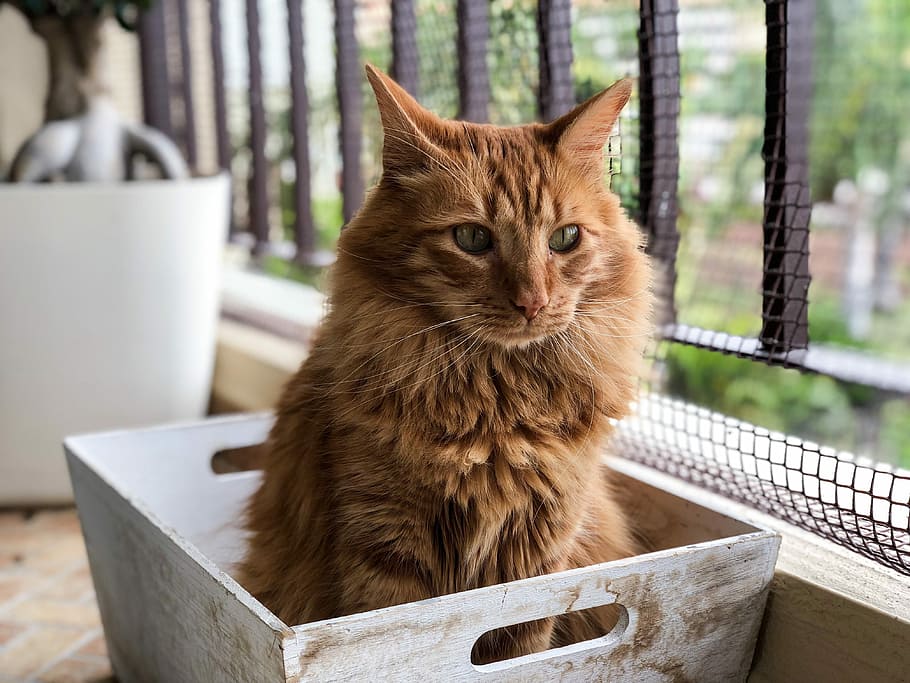Why Does My Cat Sleep in the Litter Box?
Occasionally, cat owners may encounter the peculiar behavior of their feline companions sleeping in the litter box. This baffling habit can be a cause for concern, but understanding the reasons behind it is crucial in addressing the issue. In this article, we will delve into the possible explanations and provide practical tips to help you manage a cat that sleeps in the litter box.
Understanding the Behavior: When an adult cat starts seeking solace in the litter box, it often signifies an underlying behavioral problem associated with stress or illness. It is essential to recognize that the litter box itself may not be the root cause, but rather a symptom of an underlying ailment.
Potential Causes and Solutions

Case 1: Your cat sleeps in the litter box due to stress
Stress can manifest as a significant change in your cat’s behavior, leading to a sense of unease and withdrawal. Identifying the source of stress, such as a recent move, the introduction of a new pet, or the loss of a loved one, is crucial. By addressing these triggers and providing your cat with a comfortable environment, new toys, and hiding spots, you can help alleviate their stress levels. Consultation with a veterinarian may also be beneficial, as they can prescribe anxiolytic medications to assist your cat in finding balance.
Case 2: Your cat sleeps in the litter box due to illness
Sleeping in the litter box can also be a sign of an underlying health issue. Observing changes in your cat’s appetite, stool quality, water intake, grooming habits, and overall energy levels is vital. If you notice a decline in their physical condition accompanied by the behavior of sleeping in the litter box, it is crucial to seek veterinary attention promptly.
Tips for Understanding and Addressing the Behavior

1. Creating a Comforting Environment
To help your cat feel more secure and deter them from sleeping in the litter box, create a calm and welcoming space in your home. Provide cozy cat beds, blankets, or designated sleeping areas away from the litter box. Adding vertical spaces, such as cat trees or shelves, can also provide additional safe spaces for your cat to rest and observe their surroundings. Consider using pheromone diffusers or sprays specifically designed for cats to create a soothing atmosphere. These products mimic natural feline pheromones, promoting a sense of security and relaxation.
2. Establishing Routine and Playtime
Maintaining a consistent daily routine can greatly reduce stress levels for your cat. Cats thrive on predictability, so try to establish regular feeding times, play sessions, and quiet periods for relaxation. Engaging in interactive playtime with toys that encourage physical activity and mental stimulation can help redirect your cat’s attention and energy, promoting a more relaxed and contented demeanor.
Additionally, dedicating quality bonding time with your cat through gentle grooming or quiet cuddling sessions can further strengthen the bond and alleviate stress.
3. Regular Veterinary Check-ups
To ensure your cat’s overall well-being, schedule regular check-ups with a veterinarian. Routine examinations, vaccinations, and preventive care are essential in detecting and addressing any underlying health issues promptly. Regular dental care and parasite prevention are also vital aspects of maintaining your cat’s health. By staying proactive in your cat’s healthcare, you can minimize the likelihood of them developing behaviors like sleeping in the litter box and ensure their long-term well-being.
4. Seeking Professional Help
If the behavior persists despite your best efforts, or if you are unsure of the underlying cause, it is advisable to seek professional help from a veterinarian or animal behaviorist. These experts can conduct a thorough evaluation of your cat’s behavior and provide tailored advice and solutions to address the issue effectively.
In conclusion, understanding why your cat sleeps in the litter box is essential in providing appropriate care and addressing any underlying issues. Whether it is stress-related or linked to illness, proactive measures such as creating a comforting environment, establishing routines, seeking veterinary advice, and considering professional help can help your cat find comfort and improve their overall well-being. Remember, each cat is unique, so patience, observation, and a personalized approach are key in finding the right solutions for your feline companion’s needs.
